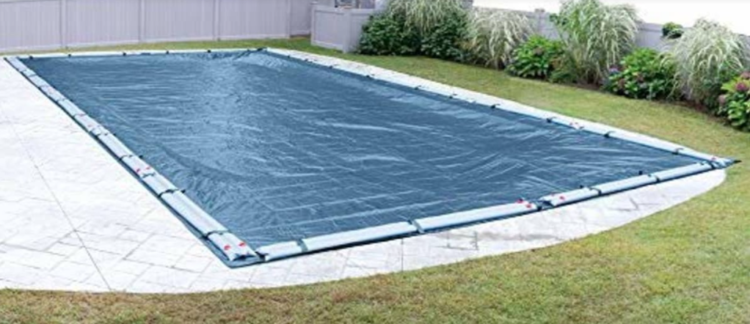Have you ever wondered why there are few pool cleaning service providers in the industry? Out of those few, you have to choose wisely which pool cleaning company you will choose. Pool Cleaning Georgia is one of the most authentic and trustworthy companies offering high-quality pool cleaning services. They are certified pool operators with all the skills and knowledge in this field. They know how to clean your pool, close it when the season ends and maintain it so you can enjoy it for a long time. If you don’t know what equipment to use, they’ll guide you throughout the process and help you until you are satisfied with their pool closing services.
Top 10 Tips on How To Close Your Pool
Winterizing and closing the pool might seem like a difficult and complex procedure, but simple preparation and understanding can be a process. Pool Closing Services in Hoschton gave the top 10 tips on quickly closing your pools.
- Start the procedure one week before closing your swimming pool.
If you have a pool in your house, you must have seen the growth of algae in warm water, which irritates you. You must add phosphate remover to eradicate the primary food source for algae one week before closing your swimming pool. Wait until the water temperature falls below 65 degrees Fahrenheit because if the temperature rises, you wouldn’t be able to prevent potential algae blooms.
- Utilize Brush and Vaccum in the pool to eliminate dust and debris.
If you don’t clean your pool properly before closing, you’ll have to face many difficulties when you open it again in spring. Pool closing services include brushing your pool thoroughly to remove all the dust from its sides and floor. After that, you must skim the surface of the pool. The next step is to vacuum the pool, pump strainer baskets, and clean the skimmers afterward.
- Organize the water levels.
The water level must be about 5-6 inches below the tile lines or skimmers if you live in a freezing area or country. Draining a lot of water is not suggested if you have a fiberglass pool or vinyl liner. You can take guidance from the swimming pool closing service providers during winter. They’ll recommend you the water levels for winter. If you live in an area that is non-freezing even in winter, you can let the pool fill at normal operating levels.
- Pool chemistry Balance
Measuring water is one of the most important tips you can implement when closing the pool. For this purpose, you can use a home test kit or get seasonal pool closing service providers to check your pool’s water balance. The water in swimming pools must be between the given ranges; if not, you can balance it according to the instructions. The alkalinity depends on the sanitizer you use, but it must be between 80-120ppm with PH levels of 7.4 to 7.6 and calcium hardness of 200-400ppm.
- Chlorine and Shock your pool
Adding chlorine to the water controls and prevents algae production, whereas shocking the water oxidizes organic contaminants. Pool closing service offers to shock the pool before closing it. Ensure that the chlorine level before closing is 2.0-4-0 ppm. If it is not, you must elevate the chlorine level by 1ppm.
- Backwash the swimming pool filter.
To complete the pool water turnover, you must start pumping the water for almost 5-12 hours after adding all the essential chemicals. Your pool filter will be ready to backwash. However, cleaning the filter is unnecessary before you shut down your swimming pool. Backwashing will make it easier for you to open your pool next season.
- Add pool antifreeze and drain the swimming pool lines.
This tip is only for those people who live in freezing regions. In winter, the pipes can freeze or burst, which is why adding antifreeze and draining pool lines is essential, as it prevents the expensive repairs of pipes. Most of the pools have equipment that helps drain out the water. Swimming pool closing service providers suggest you drain the pool heater, pool filter, and pool pump. You can use a vacuum to clean out any remaining water from the pool. When you drain out the pool plumbing, you must add pool antifreeze to protect the pool during extreme winters.
- Installation of Air Pillows
If you have above-ground pools, you need to implement this tip of inflating air pillows. Keep these air pillows in your pool with an anchor to keep them in place.
- Winter Covers and Safety Covers
Winter covers and safety covers protect your pools and your family members. Ensure that the cover is firmly and perfectly secured to your swimming pool. Safety covers prevent any accidents from happening and prevent any dust and debris during winter storms. Pool closing service providers say that once you have cleaned and covered the pool with safety covers, you must take all the worry out now because the pool is safe. However, there are two kinds of winter covers, one is mesh, and the other is solid cover. Mesh covers prevent the debris from entering the pool and let water filter through it. For solid covers, you require a cover pump to help you eliminate the excess water on the surface throughout the winter season.
- Monitoring of Chemical Balance
You should check the water chemistry regularly with a testing kit. The professional and friendly pool closing experts will help you review the results and recommend chemicals to help you balance the water chemistry. If the temperature is under 60 degrees F, you just have to do the test once a month, but if the temperature has risen, You must test it frequently.
Also read know about newsvinehub

















